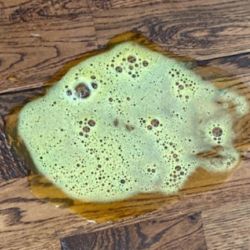
Vomiting in dogs
What to do
Causes
When to worry
Prevention
Diagnosis
Home treatment
Recommended products
Vet treatment
Risk
Other causes of vomiting in dogs
Products in this article

Vomiting in dogs
Vomiting or sickness is a common problem and can affect all dogs of any age. 85% of the time it will get better by itself or with simple management.
Sickness and diarrhoea can be caused by dogs eating things they shouldn’t. This is called gastroenteritis and often clears up within 24-48 hours. It’s important to keep a vomiting dog hydrated, but hold back feeding for a few hours.
What you should do if your dog keeps being sick
If your dog has been sick but is happy and bright:
Do not feed them for a period of 6–12 hours after vomiting (unless your dog is a puppy, has diabetes, or is pregnant)
Allow access to water, little and often
Feed small amounts of a bland diet, such as plain boiled chicken and rice, white fish, or scrambled eggs
If your dog can’t keep food or water down, please contact your vet.
Why your dog is being sick
Most common causes of vomiting in dogs
Diet: eating something they shouldn’t, eating too much too quickly, a sudden change in food, or having an empty stomach for too long
Food allergies or intolerances: reacting to an ingredient in food can cause vomiting, diarrhoea, skin rashes, and itchiness
Foreign bodies: swallowing toys, sticks, clothing, or other indigestible objects may cause blockages that lead to vomiting
Infections: viral, bacterial, or parasites (worms or protozoa) – “sickness bugs” are common and can be seasonal
Toxins and reactions to medication: such as chocolate, grapes or raisins, and certain painkillers or wormers
When to worry about your dog being sick
Take your dog to a physical vet practice if:
Your dog has been sick multiple times in a day
Vomiting and diarrhoea don’t improve after 24-48h
Your dog looks tired and uninterested in interacting
They are showing signs of pain
They are gagging or retching but not bringing anything up
Their tummy is suddenly bloated
You can see blood or black dots (like coffee granules) in the vomit
Joii can help if:
You are worried about a puppy under 12 months of age or an elderly dog
Your dog is not interested in food or water
You want to discuss feeding after vomiting
Your dog has had several episodes of occasional vomiting and diarrhoea
You think your dog might have eaten something toxic or poisonous
You want to talk about how to feed your dog after an episode of vomiting
You would like to discuss your dog’s diet
You want to know more about worming your dog
You need advice on your dog’s behaviour
How to prevent your dog from vomiting
Provide good quality food at every meal
Keep worming and vaccinations up to date
Only provide toys that are hard to chew through
Avoid scavenging and access to human food
Avoid playing and walking after a meal



How to know if your dog is about to be sick
If your dog is feeling sick and is about to throw up, you will notice:
Increased salivation
Lip licking
Unsettled behaviour
Gagging or retching
Contracting of tummy muscles
Bringing up food, clear liquid, white foam, yellow bile, or blood
How to treat a vomiting dog at home
Home remedies for dogs being sick
A vomiting dog that is otherwise bright and well in themselves can be cared for at home. If your dog has mild vomiting, we recommend:
Not feeding for 6-12h (no more than 4-6 hours in puppies).
Oral hydration products for dogs. This helps to avoid salt imbalances and encourages drinking. They can be given during the fasting period along with fresh water.
Feed bland food such as plain boiled chicken, white fish with rice, sweet potato or scrambled eggs. Give this in small amounts every 2-3 hours if no more vomiting occurs.
Prescription commercial dog food for gastrointestinal problems, such as Hill's Prescription Diet i/d: highly digestible foods that provide all they need in the right amounts and speed recovery.
Doing a slow transition from bland or prescription food to normal food over at least 4-5 days, once you are sure the vomiting and diarrhoea have stopped.
Recommended products
Vet treatments for vomiting in dogs
If your dog is not improving at home, or things seem to be more serious, your dog should be taken to a physical vet practice. Your vet will ask you lots of questions and examine your dog to find out the cause of vomiting. They may also ask to run blood and urine tests, take x-rays or carry out an ultrasound scan on their tummy.
Treatments can include:
Anti-sickness medication
Stomach protectants
Anti-acid medication
Fluids on a drip if they are really poorly and dehydrated
Surgery: to find out what the problem is, fix their stomach or remove any foreign objects that may be stuck.
Are some dogs more at risk of vomiting than others?
Any dog of any age can develop vomiting.
Dogs that eat things when they are out on walks, human food scraps, or have sudden changes in diet are at a higher risk.
Certain breeds like French Bulldogs, Labradoodles, and Cockapoos are more prone to food intolerances.
Puppies and young dogs are more likely to eat foreign bodies.
Older dogs are at a higher risk of developing general illnesses related to the liver, kidneys, or pancreas, or have tumours.
Scavengers are more likely to eat something toxic.
Dogs of large breeds or with a deep chest are more prone to develop twisted stomachs.
Dogs on long-term medication may be more likely to have ulcers or suffer from kidney or liver toxicity.
Other causes of vomiting in dogs
Vomiting in dogs is a very unspecific sign, and it can be a symptom of many different conditions, such as:
Car or motion sickness: some dogs don’t cope well when in the car and may vomit. They normally recover quickly once out of the car. Speak to your vet to get preventative treatment for this if you have to take your dog on a long car journey. Speak to an animal behaviourist if you want to train your dog to not feel sick in the car.
Morning sickness: some dogs suffer from reflux when they have long periods between meals, and may bring up bright yellow liquid, especially in the morning. Making sure that your dog doesn’t go longer than 12 hours between their meals overnight may help reduce the frequency of morning sickness.
Twisted stomach, or GDV (Gastric Dilation Volvulus)
-
Illnesses of other organs:
Liver: liver failure, hepatitis, gallbladder problems, tumours
Kidneys: chronic kidney disease, kidney infection, kidney failure, tumours, kidney stones
Pancreas: pancreatitis (inflammation of the pancreas)
Uterus: pyometra (infection inside the uterus)
Prostate: abscess
Peritonitis: infection inside their tummy
Severe infections in other parts of the body – Sepsis
Tumours
-
Metabolic diseases:
-
Bacterial infections in their stomach or gut:
Campylobacter
Salmonella
-
Viral infections:
Rotavirus
Coronavirus
-
Severe intestinal parasitic infestations:
Roundworms
Hookworms
Heartworms
Tapeworms
Whipworms
Trauma






















